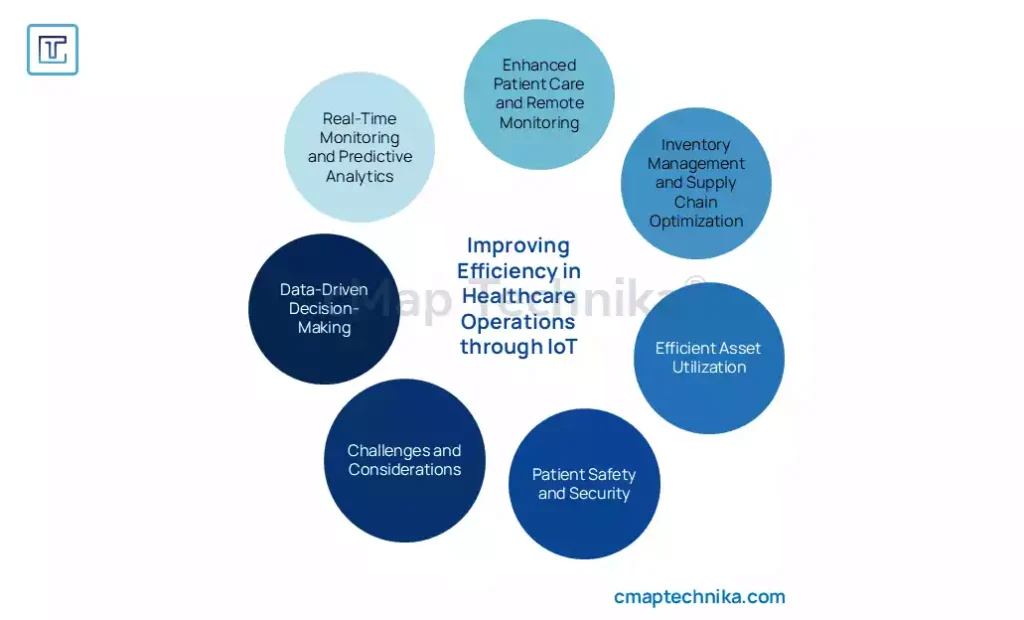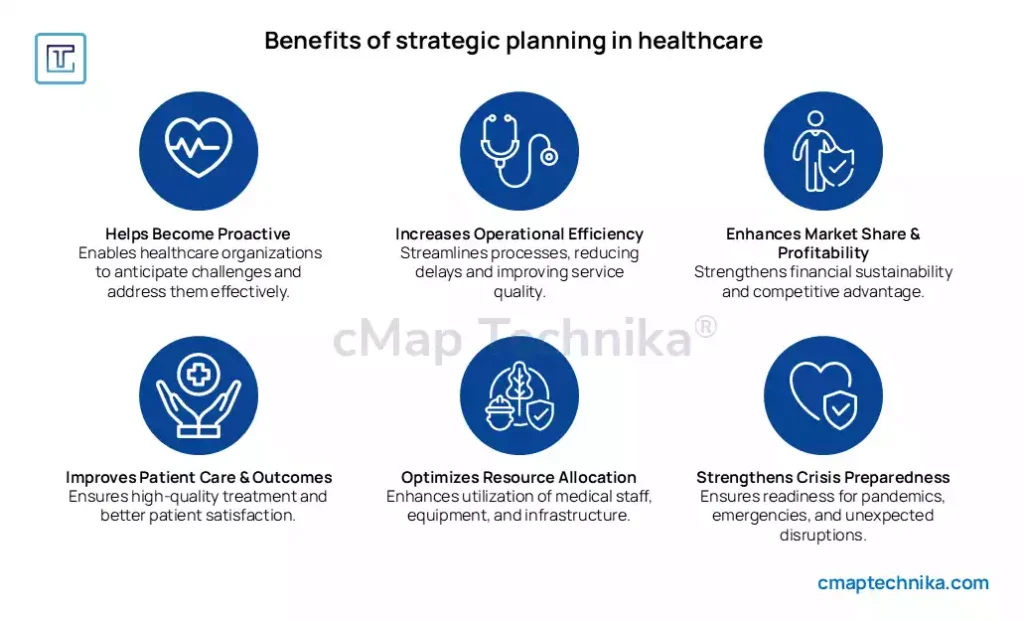The healthcare industry stands at a critical juncture. With rising patient expectations, an influx of new technologies, stricter regulations, and the ongoing pressure to improve cost-effectiveness, healthcare organizations must evolve or risk falling behind. As the demand for high-quality, accessible care grows, healthcare providers are under pressure to streamline their operations while maintaining exceptional patient care. The key to achieving this balance lies in strategic consulting—a transformative tool that helps organizations optimize their operations, leverage technological advancements, and stay competitive in an ever-changing landscape.
Strategic consulting is more than just advice—it’s a roadmap to revolutionizing healthcare operations. By working with experienced consultants, healthcare organizations can identify inefficiencies, implement best practices, and drive innovation that not only enhances day-to-day operations but also delivers long-term sustainability. This article delves into how strategic consulting is reshaping the healthcare sector, enabling organizations to improve efficiency, reduce costs, and embrace innovation for the future.
The Critical Need for Strategic Consulting in Healthcare

Healthcare organizations today face a unique combination of challenges. On one hand, the demand for quality care is increasing, driven by an aging population and the growing prevalence of chronic conditions. On the other hand, organizations are grappling with rising operational costs, strict regulatory standards, and the complexity of integrating new technologies into traditional workflows.
This complexity can lead to inefficiencies, which in turn can affect the quality of patient care and increase costs. Strategic consulting provides healthcare organizations with the expertise and support needed to navigate these challenges effectively. With the right consulting partner, organizations can achieve a comprehensive approach to operational excellence—one that fosters continuous improvement, enhances patient satisfaction, and ensures that healthcare providers can meet the demands of tomorrow.
How Strategic Consulting Helps Healthcare Organizations

Strategic consultants bring specialized knowledge that enables healthcare organizations to optimize their operations across multiple facets. Here are the key areas where consulting can make a transformative impact:
1. Optimizing Operational Efficiency
Operational inefficiencies are often the hidden culprits behind high costs and delayed care delivery. By partnering with strategic consultants, healthcare organizations can analyze their processes and identify areas for improvement. From optimizing supply chains to reducing patient wait times, consultants work with organizations to streamline workflows, eliminate bottlenecks, and ensure that resources are used efficiently.
For example, consultants may introduce lean management techniques to reduce waste in both clinical and administrative areas. They might help implement new scheduling systems to improve patient flow and ensure that staff is allocated effectively. These improvements not only reduce operational costs but also increase the organization’s ability to provide timely and high-quality care to patients.
2. Driving Digital Transformation and Technology Integration
The healthcare sector is embracing digital transformation at an unprecedented rate. Technologies such as electronic health records (EHR), telemedicine, artificial intelligence (AI), and machine learning are revolutionizing how care is delivered, monitored, and managed. However, adopting and integrating these technologies can be challenging, particularly when healthcare organizations are already dealing with complex legacy systems.
Strategic consultants bring valuable expertise in selecting, implementing, and integrating new technologies into healthcare operations. Whether it’s automating administrative tasks, improving data analytics capabilities, or introducing telehealth services, consultants help healthcare organizations stay at the forefront of technological innovation. They guide the smooth integration of digital solutions, ensuring minimal disruption to existing workflows and maximizing the benefits of these technologies to enhance patient care and operational efficiency.
3. Navigating Regulatory Compliance and Risk Management
Regulatory compliance is one of the most critical aspects of healthcare operations. With regulations like HIPAA (Health Insurance Portability and Accountability Act), the Affordable Care Act, and various state-specific laws, healthcare organizations must remain vigilant to avoid costly fines, legal repercussions, and damage to their reputation.
Strategic consultants play an essential role in helping healthcare providers stay ahead of regulatory changes. They assist in building robust compliance programs, conducting risk assessments, and ensuring that policies and procedures align with the latest legal and regulatory requirements. Consultants also help organizations implement risk management frameworks that proactively address potential issues related to patient safety, financial integrity, and operational risks, ensuring that healthcare providers can deliver care in a compliant and ethical manner.
4. Fostering Patient-Centered Care
The shift toward patient-centered care is one of the most significant trends in the healthcare sector. Today’s patients are more informed and involved in their healthcare decisions than ever before, making it crucial for organizations to provide personalized, holistic care that prioritizes the patient experience.
Strategic consultants help healthcare organizations implement patient-centric models that improve communication, coordination, and overall satisfaction. Consultants work with hospitals, clinics, and care providers to redesign patient engagement strategies, streamline care delivery, and enhance the continuity of care across the healthcare continuum. By embracing patient-centered care, organizations can not only improve health outcomes but also build stronger, lasting relationships with their patients.
5. Cost Reduction and Financial Management
Healthcare organizations must constantly balance the need for quality care with the pressure to reduce costs. Strategic consultants help identify cost-saving opportunities across the organization, from renegotiating contracts with suppliers to improving billing practices. Consultants assist healthcare providers in optimizing their revenue cycle management, ensuring that claims are processed quickly and correctly, reducing payment delays, and minimizing denials.
Moreover, consultants help healthcare organizations manage their financial health by developing effective budgeting, forecasting, and financial reporting systems. They work with leadership to identify inefficiencies, eliminate unnecessary expenditures, and ensure long-term financial sustainability. These strategies help organizations reduce overhead, reinvest in patient care, and ultimately thrive in a competitive and cost-conscious environment.
6. Leading Change Management and Organizational Transformation
Healthcare organizations often undergo significant changes, such as mergers, acquisitions, or restructuring, which can lead to disruptions in operations. Successfully managing these transitions requires careful planning, clear communication, and a strong focus on staff engagement.
Strategic consultants provide essential support during periods of organizational transformation. They develop change management strategies that help employees adapt to new systems, processes, and organizational structures. By fostering a culture of collaboration and transparency, consultants ensure that staff remain motivated, engaged, and aligned with the organization’s vision. This leads to a smoother transition, greater employee satisfaction, and continued focus on patient care during periods of change.
The Impact of Strategic Consulting on Healthcare Operations

1. Enhanced Operational Performance
Strategic consulting enables healthcare organizations to optimize workflows, reduce inefficiencies, and streamline operations. The result is improved performance across all aspects of the organization—from patient care delivery to administrative functions. Streamlined operations not only reduce costs but also improve service delivery, allowing healthcare organizations to better meet patient needs.
2. Improved Patient Care and Satisfaction
Consultants help healthcare organizations build patient-centered care models that improve the patient experience, reduce wait times, and enhance care outcomes. By focusing on holistic, personalized care, healthcare organizations can foster long-term relationships with patients and create a positive reputation within the community.
3. Long-Term Financial Sustainability
Consultants help organizations identify financial inefficiencies, optimize revenue cycles, and reduce unnecessary costs. This financial oversight ensures that healthcare organizations remain financially healthy, allowing them to reinvest in the future and continue offering high-quality care.
4. Innovation and Future-Readiness
Strategic consultants bring fresh perspectives and innovative solutions to the table, helping healthcare organizations adopt the latest technologies and prepare for future trends. Whether it’s implementing telemedicine, embracing AI in diagnostics, or adopting advanced data analytics for precision medicine, consulting helps organizations stay ahead of the curve.
Conclusion
Strategic consulting is playing a transformative role in revolutionizing healthcare operations. By optimizing workflows, driving digital transformation, improving patient care, and ensuring financial sustainability, consulting helps healthcare organizations tackle some of the industry’s most pressing challenges. As healthcare continues to evolve, strategic consulting will remain a key driver in helping organizations navigate change, foster innovation, and achieve operational excellence. By partnering with the right consultants, healthcare providers can unlock their full potential and deliver better outcomes for patients and communities alike.






